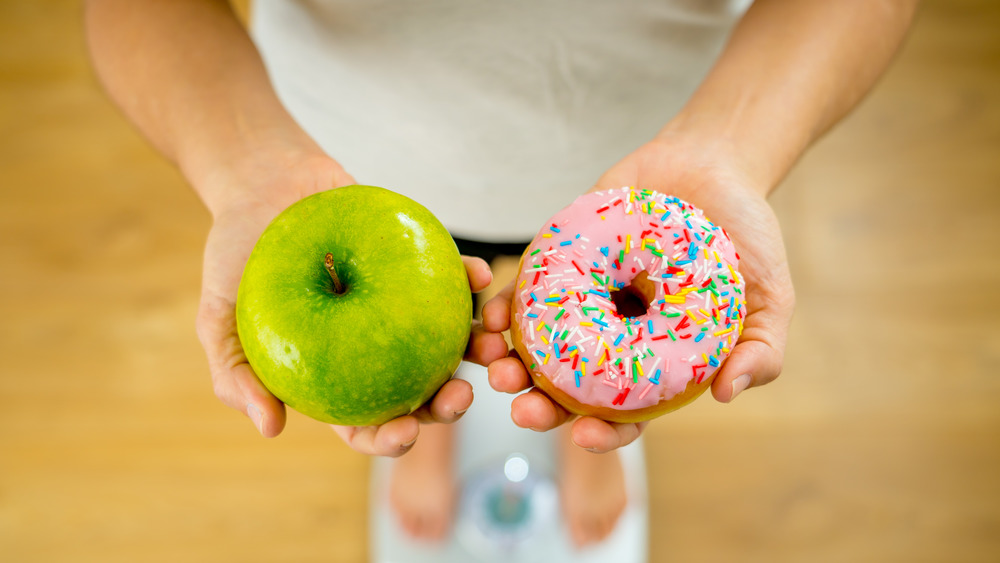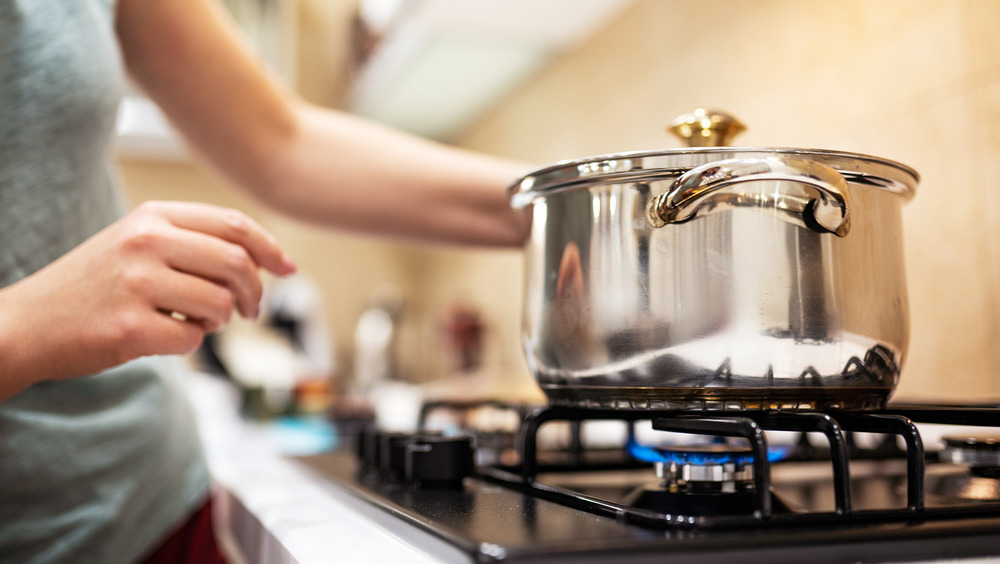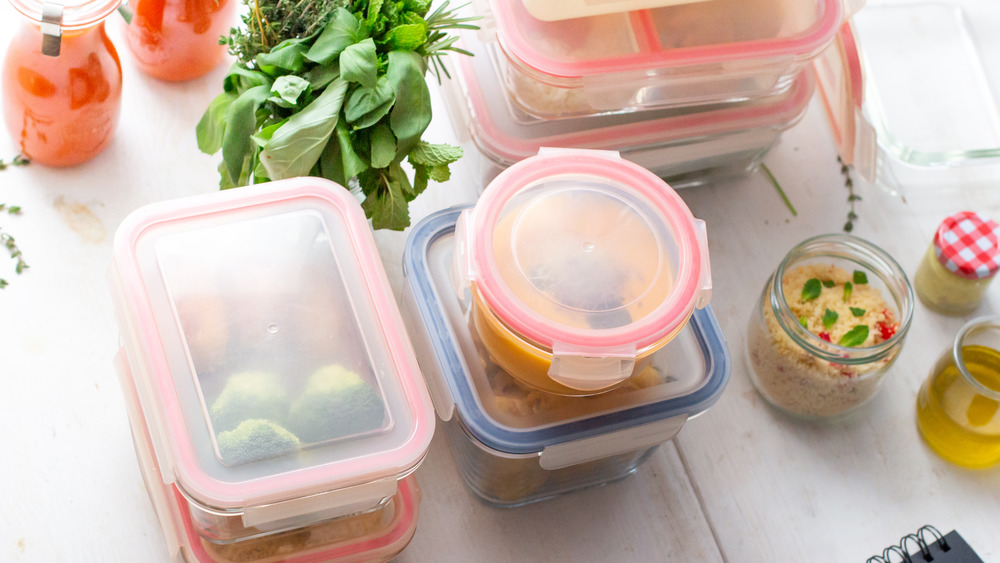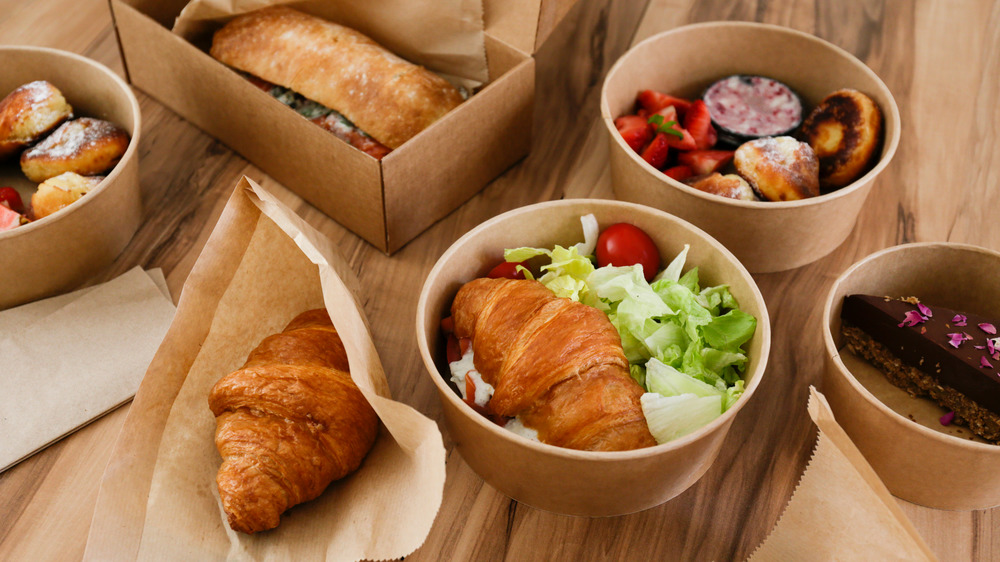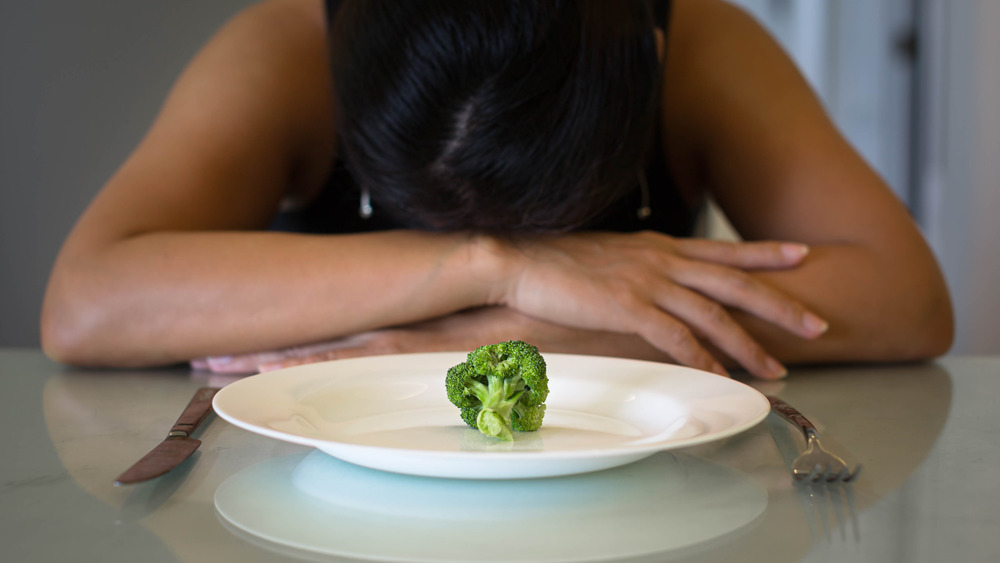Why You Should Rethink Making These Food Resolutions
The internet is full of very helpful ideas on how to turn good intention into positive action, which we look at, particularly when January comes around. Our lists of resolutions look about the same, at least for the most part. Eat healthy. Join a gym. Meet new people. Save more money. Make happiness a priority (via Lifehack). But it doesn't take long before life gets in the way of those resolutions and good intentions. Entrepreneur points to one survey that shows how just over 9% of those who take on New Year's resolutions actually see them through.
But it doesn't have to be this way, especially in the way we view our diets, because all it might take is a slight shift in the way we tackle our dietary resolutions. Dr. Brooke Scheller, DCN, CNS, and Director of Nutrition at Freshly (which specializes in delivering nutritious heat-and-eat meals to clients via subscription) has given The List a few resolutions that are doomed to fail, along with counterproposals on how to make these same resolutions become a reality.
Resolution: Committing to cooking every single meal, every single day
If you've vowed to turn over a new leaf by promising to cook every single meal you consume, every day of the year, prepare for this resolution to go the way of the dinosaur before too long. "Who's got the time?" Scheller tells The List. "Between juggling work and family responsibilities under one roof these days, it's difficult to achieve cooking every single meal, every day. Not only does this require time spent in the kitchen, but also a significant time to grocery shop and prep for the week in advance."
Instead, she suggests cutting "every meal, every day" out of the plan altogether and replacing it with "one meal a day," which sounds far less daunting and much more doable. She notes that it will help to find quick and easy ways to consume home-cooked meals, without turning meal planning and prep into a part-time job. "This might be prepping food out in advance, making extra leftovers at dinner to repurpose for lunch or the following dinner, or look for a few recipes that are five ingredients or less to cut down the time or work spent on preparing a meal," the clinical nutritionist and wellness expert says.
Resolution: Spending hours meal prepping every Sunday
Got no time to cook during the week? Well, there's always Sundays, which we can use to prep and freeze our own meals, isn't there? Not so fast, Scheller tells The List. "Oftentimes, people find that they are sick of the same old same food all weeklong with traditional meal prep — and when they get tired of something, that's when they often give up and end up ordering takeout. Or, they decide to buy something out for lunch and the food goes to waste."
Dr. Scheller suggests an option you might have considered before: a meal prep service, which takes the heavy lifting off your plate. "Prepared meals are a great solution to this because you can have the same thrill of the prepared food with more variety and excitement and try all different types of meals throughout the week. Plus, you can spend your Sunday getting in a long walk, a meditation, and time spent with friends and family."
Resolution: Eliminating food groups entirely (unless there's a food allergy/health restriction)
Scheller advises that it won't do to dump foods that you think are bad for you because "variety in our diets is a good thing. By consuming different types of foods, we ensure that we're getting adequate amounts of vitamins, minerals, carbs, proteins, fats, and other nutrients. However, some people find that they fare better without gluten, dairy, or another category of food. The most important thing is to recognize that the benefit of those food groups should still be consumed through other foods. So, if you eliminate dairy, make sure to have alternative calcium sources, like more leafy greens."
The nutrition coach tells The List that we should look to move away from an all-or-nothing approach and focus on balanced meals to stay satisfied. "While we often look to avoid foods that are "bad", this type of restrictive approach can end up working against us. When we stigmatize foods as being bad or eliminating foods we enjoy, we often end up frustrated and reaching for them during times of stress. Instead, find healthier alternatives that you enjoy and can substitute when needed. For example, cutting out sweets can be a challenge if you're used to sweet treats for a pick me up," she says. If you're craving desserts, find a healthier sweet treat like a bowl of chopped strawberries and walnuts with a handful of dark chocolate chips, which Scheller swears by.
Resolution: Skipping meals
After we've tried everything, and nothing else seems to work, we may be tempted to move to what could be our dietary DefCon 1, which is to skip meals. But Scheller says what looks like a great idea could end up becoming our Waterloo. "When we skip meals, we often experience dips in our blood sugar that eventually leave us craving high sugar and high carb foods as a pick me up. Unless you're in a fasted state, skipping meals will typically set you up for poor food choices later in the day," the wellness coach says.
The alternative resolution, she tells The List, is to only eat when you're hungry (really, how cool is that?). She says that unless you're fasting, you might want to try eating something every three to four hours. "This will help balance your blood sugar and stave off those high sugar and high carb cravings. Ideally, each meal or snack consists of protein, high fiber foods (hopefully veggies!), and a healthy source of fats."
